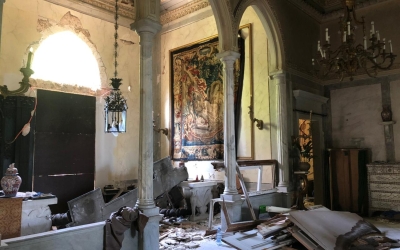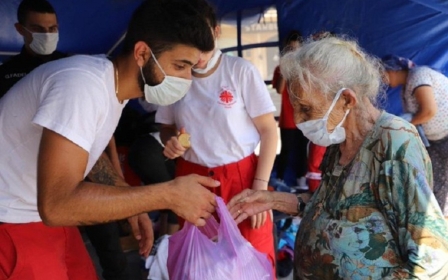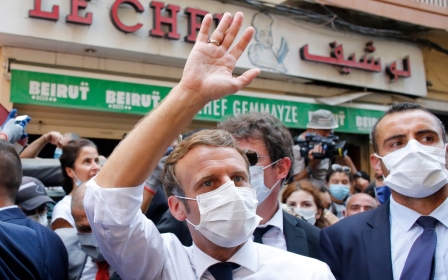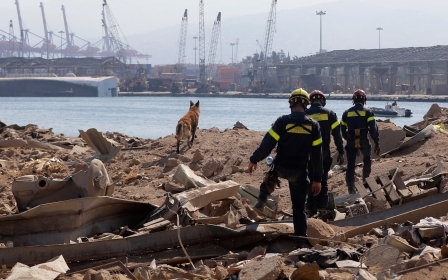Beirut explosion: Lebanon army says seven remain missing
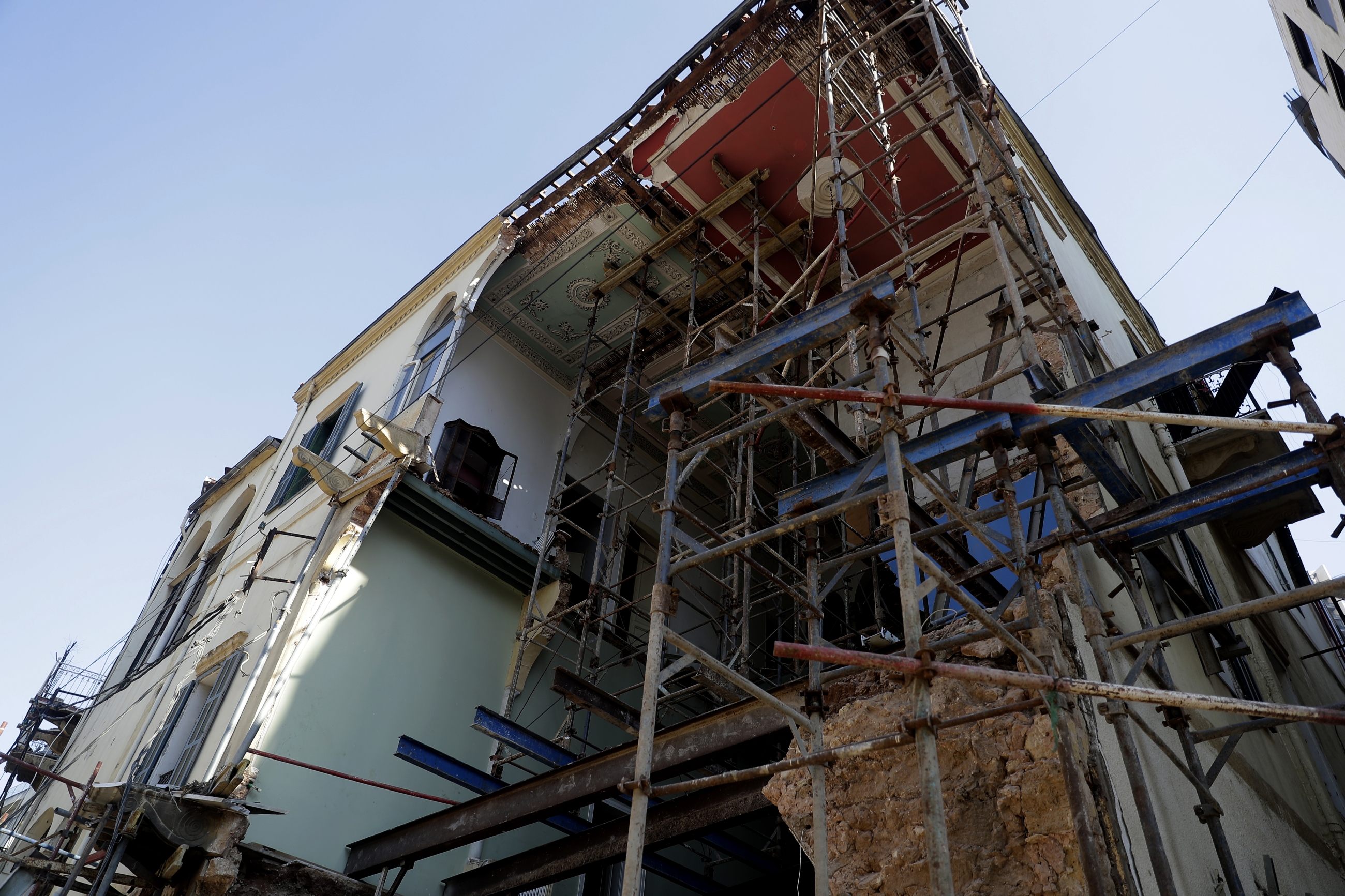
Seven people, including three Lebanese nationals, remain missing after the explosion that rocked Beirut on 4 August, leaving at least 188 dead, the Lebanese army said on Saturday.
"Search and rescue operations will not stop until the missing are found," said army spokesman Elias Aad during a press conference.
New MEE newsletter: Jerusalem Dispatch
Sign up to get the latest insights and analysis on Israel-Palestine, alongside Turkey Unpacked and other MEE newsletters
Aad said among the missing were three Syrians, one Egyptian, and three Lebanese whose relatives have submitted DNA samples.
In coordination with the Red Cross, Lebanon's Internal Security Forces has compiled data that was used to compile the figure, he added.
The ISF last week said it had identified the remains of 33 people who had gone missing following the explosion.
The death toll from the blast has climbed to 188, the health ministry said on Saturday.
At least 6,500 people were injured in the explosion of 2,750 tonnes of ammonium nitrate fertiliser stored in the port of Beirut, while tens of thousands of people were left homeless.
Misery
The disastrous incident came at a time when Lebanon has already been struggling with an an economic meltdown and the coronavirus pandemic, adding to the misery of its people, especially in the capital.
Unicef warned on Friday that an estimated 300,000 people including around 100,000 children, whose homes were damaged or destroyed in the blast, face a lack of access to critical safe water and sanitation services.
"As Covid-19 cases continue to surge, it is more critical than ever to ensure that children and families whose lives were turned upside down by the explosion have access to safe water and sanitation,” said Unicef Lebanon Representative Yukie Mokuo.
The health ministry on Friday reported 676 new infections and two deaths in a 24-hour period, bringing the total number of novel coronavirus cases registered since February to 15,613, including 148 deaths.
Daily coronavirus infection rates have spiked since the explosion. Some 5,855 cases, or more than a third of the total, have been registered in the past 10 days alone.
Middle East Eye delivers independent and unrivalled coverage and analysis of the Middle East, North Africa and beyond. To learn more about republishing this content and the associated fees, please fill out this form. More about MEE can be found here.


